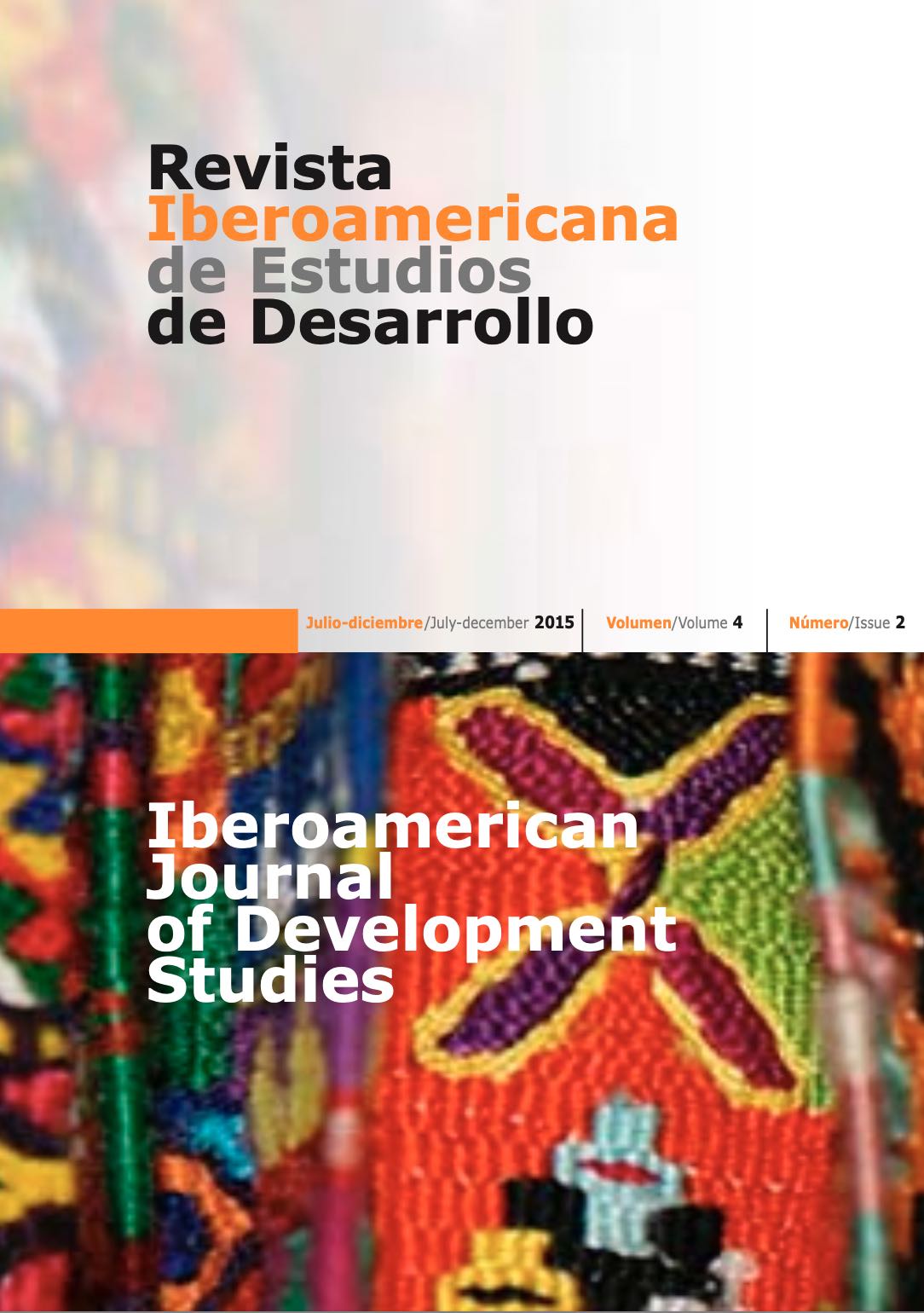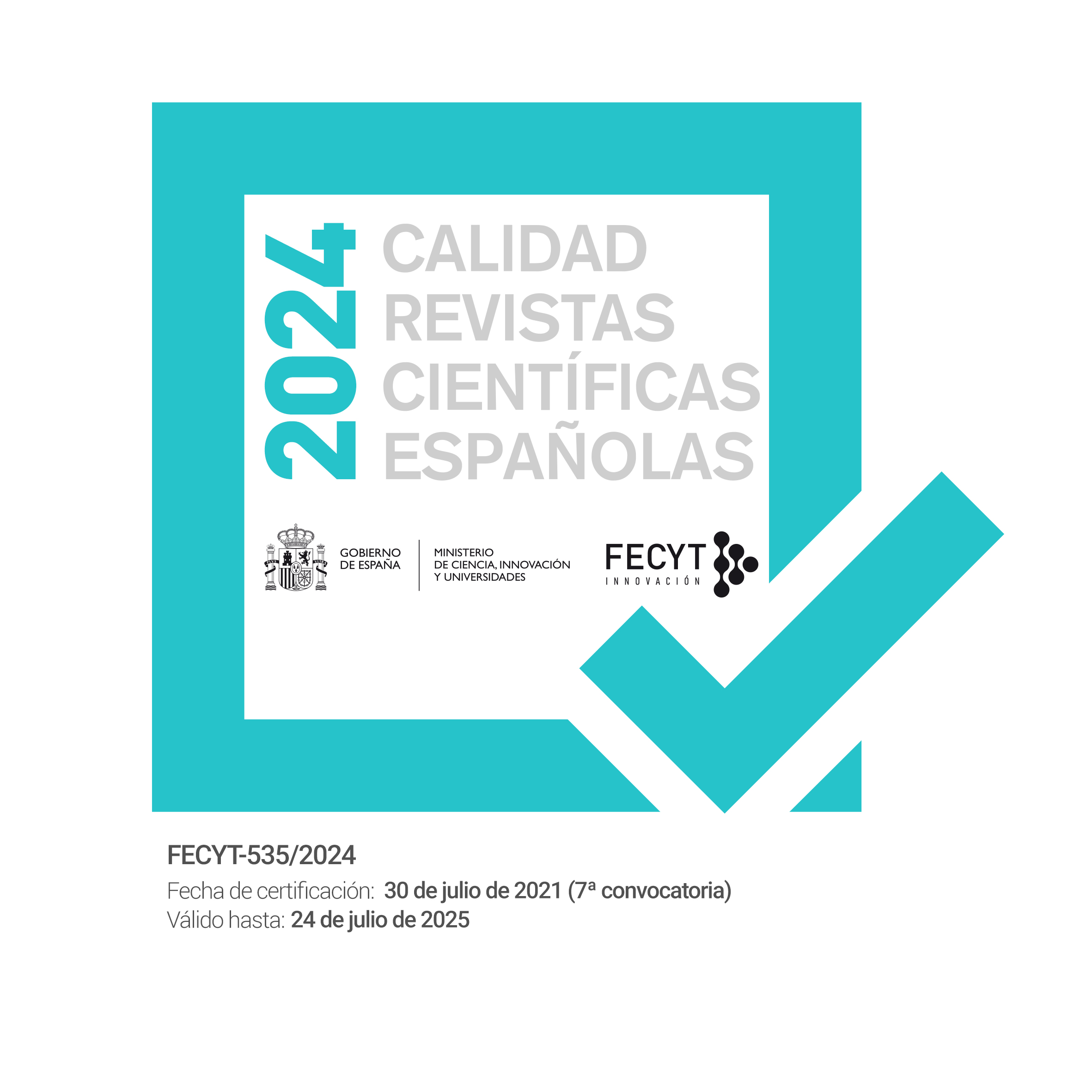Limits of the logic framework and deficiencies of the traditional evaluation in cooperation for development to asses impact
DOI:
https://doi.org/10.26754/ojs_ried/ijds.163Keywords:
cooperation, impact, effectiveness, evaluationAbstract
Measuring impact has traditionally been the weakest step in the traditional evaluation of aid, because of its costs, methodologies, time and difficulties in attributing effects. But this exercise is necessary both in technical and moral terms, especially for those benefitting from the aid.
The use of a logical framework as the most accepted tool for aid management has not helped in impact measuring, which is a revealing reflection of aid effectiveness. It is precisely those international commitments for aid effectiveness that highlight the limitations of traditional evaluation practices.
This paper intends to reflect upon those limits through a systematic academic review, and will propose a conceptual revision of impact evaluation indicator.
Downloads
References
ALONSO, J.A. (2012), La evaluación en la cooperación internacional para el desarrollo. Presupuesto y Gasto Público 68/2012: 239-255, Secretaría de Estado de Presupuestos y Gastos, Instituto de Estudios Fiscales. Madrid.
BAKEWELL, O., GARBUTT, A. (2005). The use and abuse of the logical framework approach. SIDA. Stockholm.
BIGGS, S., SMITH, S. (2003). A paradox of learning in project cycle management and the role of organizational culture. World Development Vol. 31, nº 10, pp. 1743-1757. Elsevier. Great Britain.
CALDENTEY. P. (2014). Los desafíos estratégicos de la integración centroamericana (2013-2016). Working Paper, pendiente de publicación en Revista de la CEPAL. Córdoba.
CARTER, B. (2012). Theory-based evaluation approach. Helpdesk Research Report, Governance and Social Development Resource Centre. Londres.
ETEA (2001). Desarrollando la cooperación (I). Evaluación, seguimiento y difusión de proyectos de cooperación internacional al desarrollo. Ayuntamiento de Córdoba. Córdoba.
ETEA (2003). Desarrollando la cooperación (II). Evaluación, seguimiento y difusión de proyectos de cooperación internacional al desarrollo. Ayuntamiento de Córdoba. Córdoba.
FERRERO, G. (2003). De los proyectos de cooperación a los procesos de desarrollo. Hacia una gestión orientada a resultados. Tesis doctoral dirigida por el Dr. José Juan Romero y el Dr. Eliseo Gómez-Senent, Universidad de Valencia.
FITZ-GERALD, A., NEAL, D. (2002). A Strategic Management Framework for Improved Aid Delivery. Royal Military College of Science, Cranfield University. http:www.unssc.org. Fecha de acceso: 18 de marzo de 2014.
FUJITA, N. (2010). Beyond logframe; using systems concepts in evaluation. Issues and prospects of evaluation for international development-Series IV. Foundation for Advenced Studies on International Development. Tokio.
GASPER, D. (1997). Logical frameworks: a critical assessment managerial theory, pluralistic practice. Working Series Paper 264. Institute of Social Studies. The Hague.
GASPER, D. (1999). The logical framework approach. Beyond the project enclave: questions and warnings for monitoring and evaluation of humanitarian assistance in complex emergencies. Institute of Social Studies. The Hague.
GASPER, D. (2000a). Evaluating the “Logical Framework Approach” towards learning-oriented development evaluation. Public Administration and Development, 20, 17-28, Oxford.
GASPER, D. (2000b). “Logical frameworks”: problems and potentials. http://www.petersigsgaard.dk/PDFfiler/gasper_logical_framework_problems.pdf. Institute of Social Studies. The Hague.
GERTLER, P., MARTÍNEZ, S., PREMAND, P., RAWLINGS, L., VERMEERSCH, C. (2011), Impact evaluation in practice, Ed. World Bank, Washington, http://soterespirces-wprñdbaml-prg/EXTHDOFFICE/Resources/5485726-1295455628620/Impact_Evaluation_in_practice.pdf , acceso 23 de Julio de 2013.
GOUGH, I. (2007), El enfoque de las capacidades de M. Nussbaum: un análisis comparado con nuestra teoría de las necesidades humanas, en Papeles de Relaciones Ecosociales y Cambio Global, nº 100, CIP-Ecosocial/Icaria, invierno 2007/2008.
GUIJT, I. (2013). Impact evaluation for International Development: Why we need it, why it is hard, Keynote speech en Conference “Impact Evaluation 2013: Taking stock and looking ahead”. Wageningen University. Wageningen.
HUMMELBRUNNER, R. (2010). Beyond logframe: critique, variations and alternatives. En FUJITA, N. (2010). Beyond logframe; using systems concepts in evaluations. Issues and prospects of evaluations for international development – Series IV. Foundation for Advances Studies on International Development. Tokio.
JARA, O. (2012). Sistematización de experiencias, investigación y evaluación: aproximaciones desde tres ángulos. Educación Global Research nº 1. http://educacionglobalresearch.net/wp-content/uploads/02A-Jara-Castellano.pdf. Acceso: 20 de junio de 2013.
JONES, H. (2013a). Complexity 101 Part 1: behind de hype, what do we actually know? Blog From Poverty to Power. Intermon Oxfam. http://oxfamblogs.org/fp2p/complexity-101-behind-the-hype-what-do-we-actually-know/, acceso 5 de noviembre de 2013.
JONES, H. (2013b). Complexity 101 Part 2: Getting to the so whats. Blog From Poverty to Power. Intermon Oxfam. http://oxfamblogs.org/fp2p/complexity-101-part-2-getting-to-the-so-whats/, acceso 6 de noviembre de 2013.
KUSTERS, C., VAN VUGT, S., WIGBOLDUS, S., WILLIAMS, B., WOODHILL, J. (2011). Making evaluation matter: a practical guide for evaluators. Centre for Development Innovation, Wageningen University & Research Centre. Wageningen, The Netherlands.MUÑOZ, Y. (2014), Análisis de la AOD en servicios sociales básicos, Tesis doctoral dirigida por la Dra. Mercedes Torres y el Dr. Mariano Carbonero, ETEA-Universidad de Córdoba.
NORAD (1990). The logical framework approach – Handbook for objectives-oriented project planning. NORAD. Oslo.
OCDE (2008), Declaración de París sobre la eficacia de la ayuda al desarrollo y programa de acción de Accra 2005-2008. http://www.oecd.org/development/effectiveness/34580968.pdf . Acceso 30 de julio de 2013.
RAMALINGAM, B. (2013). Aid on the edge of chaos, Oxford University Press. London.
SARTORIUS, R. (1996). The third generation logical framework approach: dynamic management for agricultural research projects. The Journal of Agriculture Education and Extension, 2 (4).
SOLEM, R.R. (1987). The logical framework approach to project design, review and evaluation in A.I.D.: Genesis, impact, problems and opportunities. Working paper 99. USAID. Washington.
STERN, E. STAME, N., MAYNE, J., FORSS, K., DAVIES, R., BEFANI, B. (2012). Broadening the range of designs and methods for impact evaluations. Report of a study commissioned by the Department for International Development. Working paper 38. London.
VÁZQUEZ, M.J., CALDENTEY, P., ROMERO, J.J. (2013). Hacia una concreción de término y metodología de evaluación de impacto de la ayuda universitaria al desarrollo coherentes con el desarrollo humano. Full Academic Paper. HDCA Conference 2013. Managua.
WIGGINGS, S., SHIELDS, D. (1995). Clarifying the “logical framework” as a tool for planning and managing development projects. Project appraisal, 10 (1): pp. 2-10.
WILLIAMS, B. (2010). Systems thinking and capacity development in the international arena. En FUJITA, N. (2010). Beyond logframe; using systems concepts in evaluations. Issues and prospects of evaluations for international development – Series IV. Foundation for Advances Studies on International Development. Tokyo.
Downloads
Published
How to Cite
Issue
Section
License
Copyright (c) 2015 María José Vázquez-De-Francisco, Mercedes Torres-Jiménez, Pedro Caldentey-Del-Pozo

This work is licensed under a Creative Commons Attribution-NonCommercial-NoDerivatives 4.0 International License.








